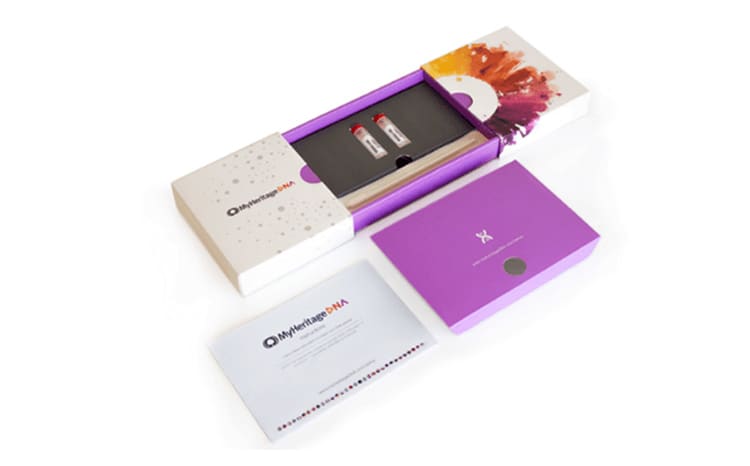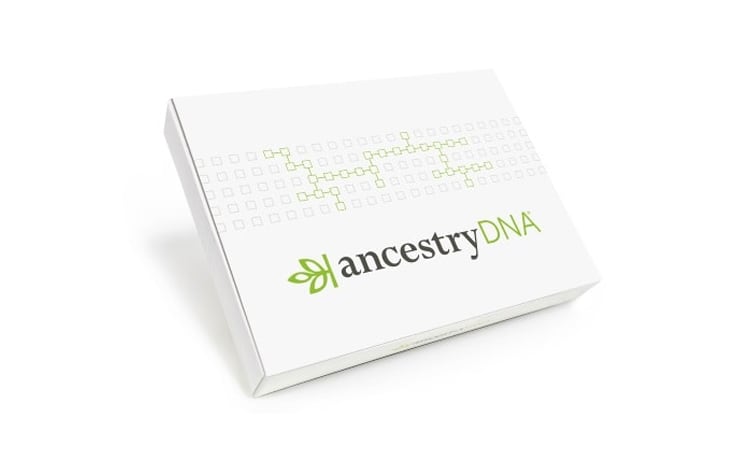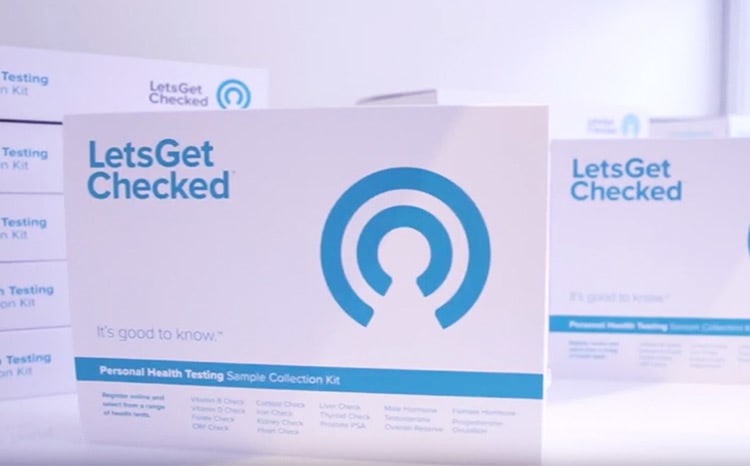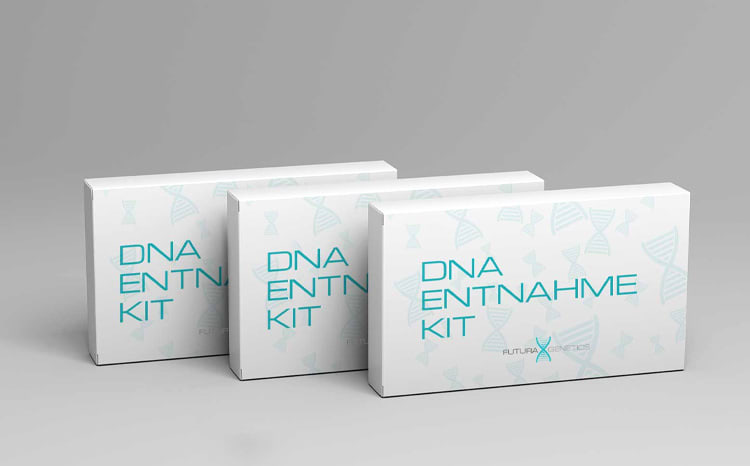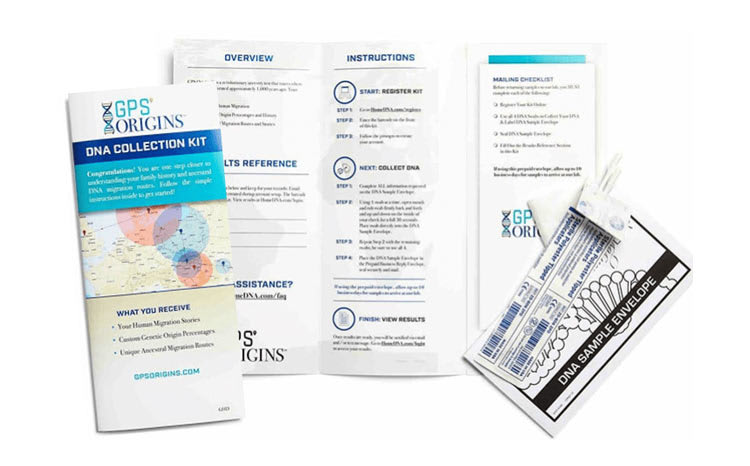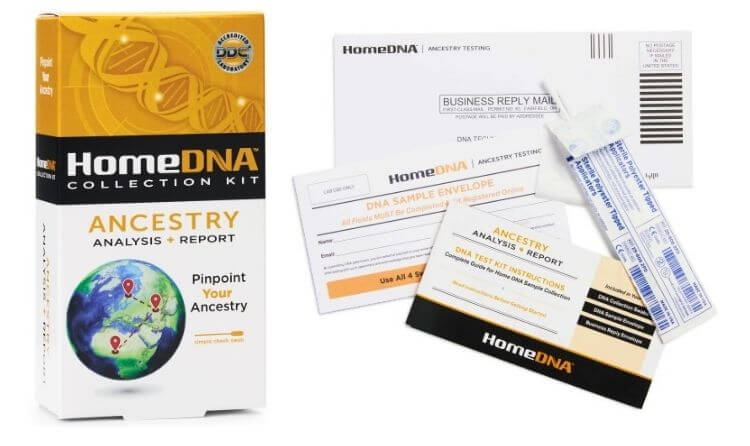What are DNA Tests?
DNA tests, also known as genetic tests, are medical checks that look for variations or mutations in your genetic sequence. Through blood, hair, or bodily fluid samples, these tests check for changes in your genes, proteins, or chromosomes. By identifying the variations in genetic code, they can map out your family history, assess the likelihood of inheriting a genetic condition or estimate your chances of developing a disease.
Although a doctor may request a genetic test for medical reasons, many people purchase at-home DNA kits out of curiosity and to learn about themselves.
Privacy Considerations with DNA Test Kits
As the popularity of DNA testing increases, there's a growing concern about privacy and data security. Common worries include the possibility of sensitive genetic information being released without your permission to third parties or the commercialization of personal data.
For example, companies may use genetic information for research and product development without authorization or consent. Some insurance companies may also use this data to determine eligibility or set premiums.
Before taking an at-home DNA test, consider the potential consequences. Sharing genetic information is a personal decision that requires careful deliberation and an understanding of both the potential benefits and risks.
Privacy and DNA Test Kits: Should You Share Your Data?
Before submitting your DNA sample for analysis, familiarize yourself with the privacy policies and potential risks involved. DNA test kit companies can collect, store, and use your genetic information for various purposes, including research, product development, and marketing. Data may also be accessed by law enforcement.
Most providers post their policies online or with product packaging so be sure to carefully read over all terms and conditions.
Another consideration should be that you and your relatives have similar genetic sequences. When sharing your genetic code, you're also sharing your family's data. Be mindful of the information you share online and only use secure digital storage that maintains safe access to your results.
How Does DNA Testing Work?
DNA testing analyzes genetic material to determine specific information about your traits, ancestry, and hereditary health risks. To test your DNA, companies generally follow these steps:
- A DNA sample is collected from your blood, saliva, or hair and submitted through a test kit.
- The sample then goes to a laboratory for analysis.
- Laboratory technicians make multiple copies of the DNA through a process called amplification.
- The amplified DNA undergoes analysis through techniques like sequencing, to identify certain genetic markers.
- This analysis informs the DNA testing kit's final results.
Using the DNA Testing Kit: Step-by-Step Guide
Using a DNA kit is a simple and convenient way to collect genetic material and send it to a laboratory for analysis. Reputable DNA testing companies include step-by-step instructions to guide you through the collection process and ensure the most accurate results.
To use the kit, you need to collect a saliva sample, usually through a cheek swab. (Although, some kits may require a blood sample). The instructions provided with the kit will guide you through how to collect the sample and how much saliva you'll need to submit.
If the DNA test kit instead requires a blood test, it'll instruct you to collect a DNA sample by pricking your finger with a lancet, gently massaging the finger to increase blood flow, and filling a supplied blood tube.
In the final parts of the testing process, you'll register the sample online using a barcode that matches your specific kit. The testing kit will include detailed instructions for finalizing your sample, along with return shipping packaging, cost information, and the expected turnaround time to process your results.
Different Types of DNA Tests
As genetic testing technology advances, so does the versatility of DNA tests. As a result, they're classified into several different types, based on the specific information they reveal. Below are the seven most popular types of DNA testing you should know about:
Family Tree Builders & Genealogy Tests
Genealogy tests like 23andMe and MyHeritage use DNA-based genetic markers to determine your ancestry—and also offer family tree-building tools. This lets you leverage genealogy test results to create a visual family tree. Although you can use one without the other, many people enjoy using the tests and family tree tools together to capture and organize their findings.
With this information, you can learn more about your background, including where your ancestors came from, their migration patterns, and their ethnicity. Family tree builders and genealogy tests are a fun and informative way to explore your ancestry and family history.
Sibling DNA Test Kits
Sibling DNA test kits may be particularly helpful in confirming genetic bonds between brothers and sisters, or reliable parentage testing (if one or both parents are unavailable or deceased). This type of DNA relationship testing also helps establish legal relationships for inheritance or immigration purposes.
Paternity Tests
Paternity tests are often used to compare the DNA of a child with their potential father's, to see if it matches. A positive result indicates that the man is indeed the child's biological father.
Paternity tests are usually done to establish or prove legal parentage, and assist with child custody or support arrangements.
Ancestry Tests
Otherwise known as genetic genealogy, ancestry DNA testing determines your ethnic background and family history. These tests can fill in any gaps you may have with historical records, and confirm stories from relatives.
Because ancestry tests make ethnicity estimates based on genetic data, some are designed specifically for certain populations. For example, certain kits have an extensive database of African American and Asian genetic information and provide detailed and specific results for descendants of these ethnic groups.
Health Tests
Health DNA tests analyze your DNA to identify any genetic markers or variations that could indicate an increased risk for certain health conditions or diseases. They provide health information that can shape daily lifestyle choices, medical decisions, or treatment options.
In addition, several health DNA tests are designed to detect carrier status for specific conditions, such as sickle cell disease.
Note: You shouldn't use health DNA tests to diagnose illnesses or diseases without the guidance of your healthcare provider.
Gene Therapy
Gene therapy is a medical process that aims to prevent and treat genetic disorders. It does so by identifying the underlying issue and modifying genetic material within your cells.
This process may include replacing a mutated gene with a functional one, deactivating a disease-causing gene, or introducing a new gene to fight a particular disease.
Although gene therapy is still in early development, it could treat or cure many genetic diseases, including diabetes, cystic fibrosis, and cancer.
Forensic Tests
Using techniques like DNA profiling or fingerprinting to analyze samples, forensic DNA testing can identify individuals based on their genetic patterns. The process involves collecting DNA samples from various sources to create a profile for the individual. The profile is then compared to known samples, like those of a person in a law enforcement database, to see if there is a match.
Forensic DNA testing has become a crucial tool for both law enforcement and legal purposes. It is used not just to establish biological relationships between people but to confirm the identity of crime suspects.
How to Choose a DNA Test Kit?
Different DNA test kits focus on providing a wide variety of data and results. To determine which is right for you, consider your goals. Are you hoping to confirm ancestry, find lost relatives, or learn more about potential health issues?
Along with these considerations, seven key factors can connect you with the best DNA test to match your specific interests or needs.
Information Revealed by the Test
Before buying a DNA kit, consider your motivation and goals for taking the test. For example, an ancestry DNA test will help you learn more about your ethnicity and family heritage. A health test is best if you and your doctor want to rule out potential genetic conditions.
Type of Test
DNA tests uncover different types of data, depending on the genetic material they analyze. For example, mitochondrial DNA tests reveal information specific to your maternal line (your mother's side of the family). In contrast, Y-DNA tests show information specific to your paternal line (your father's side of the family).
Pricing for DNA Testing
The price of a DNA kit varies based on the type of test and the laboratory performing the analysis. Some kits, such as LivingDNA, can be relatively inexpensive, while others can be quite costly.
Research the cheapest DNA testing kits available today to find one at a price that fits your budget. As you conduct your search, be aware that insurance may not cover the cost of health-related DNA testing. Check with your insurance provider and the test distributor to learn if you'll need to pay for the full price of your test or if some of the cost could be covered.
Pricing for Other DNA Test Types
There are sometimes other costs to consider beyond the purchase price of your DNA testing kit. For example, you may need to pay extra for testing processes. Certain types of DNA tests may collect and submit multiple samples, which increases the overall cost of the testing.
Others, like those for prenatal or cancer-related genetic information, may require further medical procedures, biopsies, or imaging tests. Plus, you may need to pay for genetic counseling and follow-up medical care. Consulting with healthcare providers or genetic counselors will help you better estimate total costs.
Ease of Use
Simplicity can be a differentiator when it comes to selecting DNA testing kits. The process of collecting a sample can vary depending on the type of test—with some methods being significantly more difficult than others. As you shop for tests, look for those that include step-by-step instructions, non-invasive sample collection, and easy-to-understand privacy and security protocols.
Quality of Reports
If you go through collecting and submitting DNA samples for testing, you'll need to understand the results in the final report. Get the help of your healthcare provider or a genetic counselor to explain some of the raw data. You can also choose a company that offers a clear and straightforward final record. (Kits like 23andMe and AncestryDNA are known for their user-friendly reports).
Accuracy of DNA Test Results
The type of test you take—and how you take it—can impact the accuracy of your results. To sort through which tests have higher levels of accuracy, you may need to do a little homework. We advise you to read user reviews and explore what customers say about test results and accuracy before making your purchase. Also watch for reports of false positive or negative results, which can have serious implications, especially in the case of paternity.
Brands like AncestryDNA and MyHeritage DNA are well known for their accurate testing results.
Privacy Protection
DNA testing reveals sensitive information about your genetic makeup, impacting your personal, medical, and familial data. To protect your privacy, you need to know how your samples and results may be used and stored, and how access to results is managed.
Some DNA tests require the submission of a sample to a third-party laboratory, which should raise privacy concerns. We recommend carefully reading testing kit privacy policies to better understand any potential implications that may come with the analysis, and publication (or distribution) of your DNA kit's results.
Special Features
Beyond basic genetic results, some DNA kits boast bonus features and may provide additional particulars and insights about your genes. For example, several DNA tests identify carrier status for certain genetic conditions or can provide information on your ancestry timeline. Others grant access to larger databases filled with millions or billions of DNA matches.
Who Should Consider DNA Testing? And Who Shouldn't?
Even if you're looking to find specific DNA results for your gene sequence, there are some instances in which it may be better for a family member to take a test, rather than you. There are also situations in which taking a DNA test may negatively impact your health.
To help confirm if the benefits of testing outweigh the risk, we recommend genetic counseling before and after taking a DNA test. But in most common-use cases, the following information can help discern if it's a safe option.
Some of the best reasons to get a DNA test include:
- Wanting to know more about your ancestry and family history.
- Determining if you're at risk of a particular health condition.
- Finding information about your biological family.
- Confirming maternity or paternity.
Although it's generally safe for most people to take a DNA test, there are circumstances where a test may not be necessary or appropriate for you. These include:
- Currently undergoing medical treatment, such as chemotherapy (which can temporarily affect the accuracy of your results).
- Being uncomfortable with a company analyzing and storing your genetic information.
- A history of mental illness that may cause you or your family to struggle with the emotional impacts of your test results.
What Can DNA Testing Reveal?
DNA tests can reveal a scope of information not limited to your ancestry or health. They can also indicate dietary limitations, share genetic markers, predict or explain reactions to certain medications, and help develop or prescribe personalized medicine.
Limits of DNA Testing
Although DNA tests are a powerful tool to reveal lots of information about you and your ancestry, there are limitations. For example, they can't predict behavior, personality, environmentally-influenced traits, and other non-genetic factors. Although health-related tests can alert you to potential health developments, they also can't provide a 100% guarantee regarding your future health or the likelihood of developing a genetic condition.
Important DNA Testing Terminology
When researching DNA test kits, you may run into unfamiliar terms and language. To help decipher the most commonly used terms, we created a dictionary capturing the top nine genetic words or phrases you'll need to know.
- Chromosome: A cell structure that contains DNA and proteins. Humans have 23 pairs of chromosomes in each body cell, one of each pair from the mother and the other from the father.
- Gene: A section of DNA containing instructions for making a specific protein. Genes determine many physical characteristics, such as eye color and height.
- Genetics: The scientific study of genes and heredity.
- Heredity: The passing of genetic character from parents to their offspring through genes.
- Haplogroup: A group of individuals who share a common ancestor based on their DNA.
- Autosomal DNA: DNA found in the 22 pairs of chromosomes, other than the sex chromosomes (X and Y). Autosomal DNA is a key factor in learning about your ancestry and ethnicity, collecting information from as far back as five generations.
- Mitochondrial DNA: DNA found in the mitochondria, or the energy-producing structures in our cells. Since mitochondrial DNA is inherited from the mother, it can reveal information about the maternal side of your family.
- Y-chromosome DNA: DNA found on the Y chromosome, passed down from the father. Y-chromosome DNA can provide information about your paternal family members.
- Reference population: A group of individuals used for comparison purposes in genetic testing. This can include individuals from specific regions or ethnic groups.
Emerging Trends in DNA Testing Shaping the Future
The DNA revolution has arrived—and it's here to stay. From history to health and forensics, DNA testing provides comprehensive insights and genetic information to broaden scientists' understanding of the human genome.
Recent DNA research and testing have created several notable trends that may influence and potentially revolutionize the future. Some of these include:
Retelling History
Today, the study of DNA is changing the way we understand history. Researchers are using DNA testing to learn more about the migration patterns of ancient populations and gain a deeper understanding of human evolution. For example, in a 2020 study, Takashi Gakuhari and Shigeki Nakagome of Trinity College, Dublin, led a team that analyzed whole-genome sequence data from a 2,500-year-old Jomon individual using DNA testing. They were able to gain new insights into the migration routes of early East Asian populations.
Heritage Travel
Not only can you investigate your ancestry, but you can also explore your heritage. Thanks to DNA testing, heritage travel companies help individuals connect with their ancestral homelands and provide personalized travel experiences based on their genetic heritage.
Advancing Wellness
DNA testing can provide information about genetic risks for certain medical conditions and drug reactions. This can help you make lifestyle changes to reduce the probability of developing those conditions. Building knowledge of your biological responses to certain pharmaceuticals can also help your healthcare provider personalize medications and treatments to your needs.
Early Disease Detection
Recent studies are using DNA testing to detect diseases earlier—significantly improving survival chances. For example, in 2020, Xindong Chen and his team of researchers successfully used DNA testing to detect cancer in its early stages. This is a notable advancement, particularly when treating diseases like cancer; early detection can be the difference between survival or seriously perilous consequences.
Fighting Crime
DNA testing is increasingly important in solving crimes and bringing criminals to justice. The ability to collect an individual's DNA and match it to evidence at a crime scene has revolutionized law enforcement and forensic science. For example, in 2013—49 years after the crime occurred—the Boston Police Department used Y-DNA analysis to solve the case of the Boston Strangler.
Additional DNA Test Kits and Companies We've Reviewed
As DNA testing becomes increasingly popular, many new companies and test kits are entering the market. While this top 10 list of DNA testing kits is a good starting point, there are additional options that didn't make our list but are still worth exploring:
- International Biosciences - Best for family relationship tests
- Bio-Gene DNA - Best for a discrete approach to locating biological parents
- Findmypast - Best for free access to family tree building software
- Paternity Depot - Best for paternity test results that have legal validity
- DNA Direct Solutions - Best for infidelity DNA testing
Our Most Popular Articles on DNA Testing
Making an Informed Purchase of a DNA Testing Kit
DNA testing is a rapidly growing field offering a rich bank of information about your ancestry, health, and genetic predispositions.
Our picks for the top 10 best DNA testing kits are MyHeritage DNA, AncestryDNA, Living DNA, LetsGetChecked, Futura Genetics, GPS Origins, 23andMe, HomeDNA, Vitagene, and EasyDNA.
Top10 offers tips to help you identify the best DNA test kit for your needs, interpret your results, and understand the terminology you may encounter so that you can make the most informed decisions about DNA testing.
AncestryDNA tops the other DNA and genetic testing companies as the most accurate. Aside from providing in-depth ancestry research, they also have billions of records to compare their results.
Most DNA test kits are indeed accurate. Still, we suggest that you select the best kits to fit your specific needs. For example, if you're looking specifically for a paternity test kit, find companies that feature that type of product (rather than buying a kit for ancestry or health-related DNA reporting).
Most siblings only share 50% of their DNA. But, identical twins may share 100% of their DNA.
The cheapest way to get a DNA test is to research providers within this list and shop from their test kit offerings. (For example, MyHeritage DNA offers a budget-friendly kit). But, companies often have promotions and discount offers, so check their websites for sales information.
AncestryDNA and 23andMe are both reputable at-home DNA testing kit providers. Each has positive DNA testing reviews, but a few differences exist. Deciding which provider better matches your needs requires a little DNA test comparison research. But if you're looking at genetic testing, AncestryDNA has a more robust database than 23andMe.
Yes, there are. The most significant risks include data privacy and security, especially for sensitive health results. You should only use DNA test kits from companies that carefully explain how they consider these risks and what acceptable measures they take to mitigate them.




















